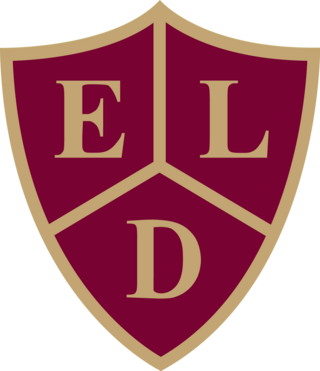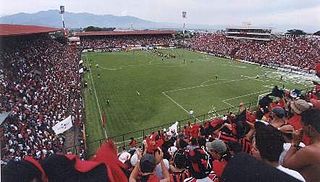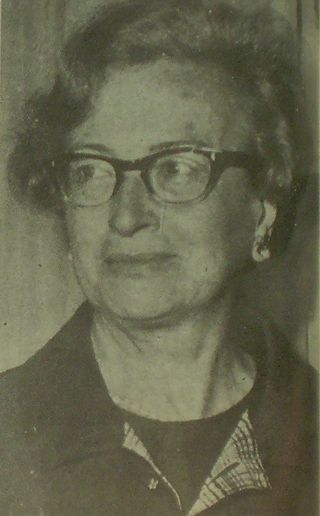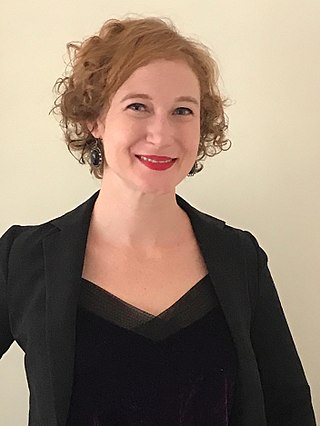Related Research Articles

The University for Peace (UPEACE) is an international university and intergovernmental organization established as a treaty organisation by the United Nations General Assembly in 1980. The university offers postgraduate, doctoral, and executive programmes related to the study of peace and conflict, environment and development, and international law.
This lists of law schools is organized by world region and then country.

Mahmoud Cherif Bassiouni was an Egyptian-American emeritus professor of law at DePaul University, where he taught from 1964 to 2012. He served in numerous United Nations positions and served as the consultant to the US Department of State and Justice on many projects. He was a founding member of the International Human Rights Law Institute at DePaul University which was established in 1990. He served as president from 1990 to 1997 and then as president emeritus. Bassiouni is often referred to by the media as "the Godfather of International Criminal Law" and a "war crimes expert". As such, he served on the Steering Committee for The Crimes Against Humanity Initiative, which was launched to study the need for a comprehensive convention on the prevention and punishment of crimes against humanity, and draft a proposed treaty. He spearheaded the drafting of the proposed convention, which as of 2014 is being debated at the International Law Commission.

Escuela Libre de Derecho(ELD) is a private law school in Mexico City, Mexico. Founded in 1912, it is the oldest private institution dedicated to teaching the legal profession in Mexico.

University of Illinois Chicago School of Law is the law school of the University of Illinois Chicago, a public research university in Chicago, Illinois. Founded in 1899, it became affiliated with the university in 2019. The school offers programs for both part-time and full-time students, with both day and night classes available, and offers January enrollment.

The 2004 CONCACAF Champions' Cup was the 39th edition of the annual international club football competition held in the CONCACAF region, the CONCACAF Champions' Cup. It was won by Alajuelense after a 5–1 aggregate win over Deportivo Saprissa in the final.

Phi Delta Phi (ΦΔΦ), commonly known as Phid or PDP, is an international legal honor society and the oldest legal organization in continuous existence in the United States. Founded in 1869 at the University of Michigan as a professional fraternity, it was designated as an honor society in 2012. It is considered among the world's most prestigious professional organizations.

Luis Pazos is a Mexican economist, writer and politician. He has a degree in Economics and Administration from the Instituto Tecnológico y de Estudios Superiores de Monterrey, and a degree in Law from the Escuela Libre de Derecho in Mexico City. He studied public administration at New York University (NYU).
Roberto Guajardo Suárez was a Mexican lawyer who served as the second director-general of the Monterrey Institute of Technology, as a founding president of Sociedad Artística Tecnológico in 1948 and as president of Coparmex, a Mexican employers' association (1960–1973).
Luis Pedro Alejandro Recasens Siches was a Spanish politician and a legal philosopher.
The North American Consortium on Legal Education (NACLE) comprises 13 participating law schools in Canada, Mexico, and the United States. The general purpose of NACLE is to promote and share understanding of the legal systems within North American countries. The specific purpose of the Consortium is to enhance the capabilities of each member to provide high quality legal education and research appropriate to the demands of the professional environment in North America.

T. Markus Funk is an American attorney, law professor, and author known for the prosecution of several high-profile mob figures during his career at the United States Department of Justice, his role in co-leading the internal investigation into former Ohio State University team physician Dr. Richard Strauss, and trial victory on behalf of the Costa Rican citrus industry. He is currently a partner in the law firm of Perkins Coie, where he served as the Firmwide Chair of the firm's global White Collar & Investigations Practice.

Ángela Acuña Braun, also known as Ángela Acuña de Chacón,, a Costa Rican lawyer, women's rights pioneer and ambassador, was the first woman to graduate as a lawyer in Central America. Orphaned at the age of 12, she was raised by her maternal aunt and uncle, attending elementary school and beginning high school in Costa Rica. She continued her education in France and England, gaining exposure to the ideas of women's rights. Returning to Costa Rica in 1912, she published articles in support of women's equality. She attended the boys' lyceum or high school where she passed the bachillerato, a prerequisite for entering law school. She embarked on law studies in 1913, leading to a bachelor's degree in 1916. As women were barred from entering the profession, Acuña immediately presented a reform to the civil code allowing this, which was adopted.

Margarita Argúas was an Argentine lawyer who pioneered participation of women into the legal profession. She was the first woman to hold a chair in the law faculty at the University of Buenos Aires, first woman to be appointed to the National Academy of Law and Social Sciences, as well as the first woman to serve on the Argentine Supreme Court of Justice of the Nation. Internationally, she was the first woman to become president of the International Law Association, serving from 1968 to 1970 and was a member of the Permanent Court of Arbitration in The Hague between 1977 and 1983. She was posthumously honored with a Konex Foundation award in 1986 for her work in Civil and International Law.

Valeria Vegh Weis is an Argentinean-German Author. She specializes in criminology, criminal law, international criminal law and transitional justice. Vegh Weis is a Research Fellow at Konstanz Universität Zukunftskolleg, where she focuses on the role of victims organizations to confront state crimes. She is also an adjunct professor at Buenos Aires University and Quilmes National University. She is the Vice President of the Instituto Latinoamericano de Criminología y Desarrollo Social. Vegh Weis won several awards, including the Critical Criminology of the Year Award by the American Society of Criminology.
Social Guarantees were a series of progressive political reforms made in Costa Rica in the 1940s for the benefit of the working classes. They came about as a result of the alliance between various political and religious figures. Though a widespreads effort, there were three main leaders:
Nicaraguan nationality law is regulated by the Constitution, the General Law for Migration and Foreigners, Law No. 761 and relevant treaties to which Nicaragua is a signatory. These laws determine who is, or is eligible to be, a citizen of Nicaragua. The legal means to acquire nationality and formal membership in a nation differ from the relationship of rights and obligations between a national and the nation, known as citizenship. Nicaraguan nationality is typically obtained either on the principle of jus soli, i.e. by birth in Nicaragua; or under the rules of jus sanguinis, i.e. by birth abroad to a parent with Nicaraguan nationality. It can also be granted to a permanent resident who has lived in the country for a given period of time through naturalization or for a foreigner who has provided exceptional service to the nation.
Salvadoran nationality law is regulated by the Constitution; the Legislative Decree 2772, commonly known as the 1933 Law on Migration, and its revisions; and the 1986 Law on Foreigner Issues. These laws determine who is, or is eligible to be, a citizen of El Salvador. The legal means to acquire nationality and formal membership in a nation differ from the relationship of rights and obligations between a national and the nation, known as citizenship. Salvadoran nationality is typically obtained either on the principle of jus soli, i.e. by birth in El Salvador; or under the rules of jus sanguinis, i.e. by birth abroad to a parent with Salvadoran nationality. It can also be granted to a citizen of any Central American state, or a permanent resident who has lived in the country for a given period of time through naturalization.
References
- ↑ "GLS Awards | Global Legal Skills Conference | University of Illinois Chicago".
- ↑ "About | Global Legal Skills Conference | University of Illinois Chicago".
- ↑ "About | Global Legal Skills Conference | University of Illinois Chicago".
- ↑ "About | Global Legal Skills Conference | University of Illinois Chicago".
- ↑ "About | Global Legal Skills Conference | University of Illinois Chicago".
- ↑ "Past Conferences | Global Legal Skills Conference | University of Illinois Chicago".
- ↑ "Global Legal Skills Conference". Archived from the original on 2016-03-10. Retrieved 2016-03-08.
- ↑ "GLS Awards | Global Legal Skills Conference | University of Illinois Chicago".
- ↑ "GLS Awards | Global Legal Skills Conference | University of Illinois Chicago".
- ↑ Awards and Prizes, Chronicle of Higher Education, Mar. 25, 2016, at A33.
- ↑ "GLS Awards | Global Legal Skills Conference | University of Illinois Chicago".
- ↑ "Global Legal Skills Conference V".
- ↑ "Global Legal Skills Conference". Archived from the original on 2016-06-05. Retrieved 2016-03-26.
- ↑ "Global Legal Skills Conference". Archived from the original on 2016-03-10. Retrieved 2016-03-08.
- ↑ "Legal Writing Prof Blog".